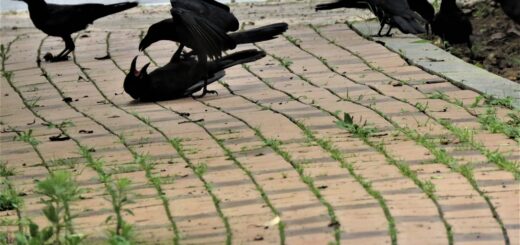Pandemic Musings
If every single Republican in Washington, D.C. over age fifty tests positive for COVID-19, and not a single one of them dies or even becomes critically ill, will the media still try to cite this spread as evidence that America needs more lockdowns, masks, social distancing, and mass hysteria to save us from this deadly contagion? That’s a rhetorical question, of course. In fact, the media and their government masters have long since achieved the mass psychological deception of conflating “infections” with mortality in the public discussion, such that the mere fact that there are any positive tests proves (in the popular imagination) that we are all going to die.
If the U.S. election has to be delayed due to Trump’s “death” (i.e., positive test), there need be no major concern. The country will remain in good hands during the extension of Trump’s term, as the president’s admired friend Vladimir Putin has undoubtedly already agreed to step up to the helm and maintain stability in America during such a crisis.
My Aunt Marie died this week “of COVID-19.” She was eighty-eight years old, had been living in a nursing home for many years in a physically and mentally deteriorating condition, with many underlying health problems, including diabetes. Recently, despite the severe lockdown conditions both at her home and in the province of Ontario as a whole, there has been a surprisingly severe outbreak of the coronavirus among residents at the facility, and several have died. (The primary victims of this virus, as I have written numerous times, have been precisely the people we are all supposed to be using as our excuse for complying with tyrannical restrictions on all our lives — because of course we are lying when we claim, self-righteously, that we want this tyranny “for our elders.” It is our convenient rationalization for our personal cowardice and intellectual malleability.)
Aunt Marie was the first COVID-19 death I am aware of among my own circle of personal acquaintances, friends, and relations stretching over multiple countries where, as a teacher and writer, I have naturally formed a great many connections through my life, including many with people considerably older than myself. Inevitably, since these thoughts have been in my mind repeatedly over the past several months (as regular readers here will know), Aunt Marie’s death delivered me into this musing: During the fourteenth century plague pandemic, it was common, indeed almost certain, for any given person to have lost several of his own family members to that illness within the past several months. It was unavoidable that many people in one’s community would have disappeared, one’s neighbors would be burying their children on a weekly basis, and normal social life would have ground almost to a halt for the simple reason that everyone would be too busy digging makeshift graves, or too deathly ill to leave their homes or dare coming into contact with others, for any semblance of normal community interaction to carry on during those terrifying few years.
In my own case, by contrast, having lived for these eight coronavirus months in the nation that was the first non-Chinese epicenter of the pandemic, with my entire extended family living in Canada, which has had its own much more severe outbreak of the virus for several months, and with many friends and friendly acquaintances among my American readers, I myself have (to the best of my knowledge) lost just one personal connection to COVID-19 so far — an eighty-eight-year-old aunt. Yet I am daily exhorted to submit myself to totalitarian restrictions on my movements and activities, as well as to the complete obliteration of my privacy, and I am continually aware that I would immediately become a crank, if not a pariah, in the eyes of almost any company — even friends and friendly co-workers — if I dared to tell them even a tenth of what I really think about all this mass panic and global tyranny, and about the meaning of our acquiescence to it. (I know, for I have tried.)


